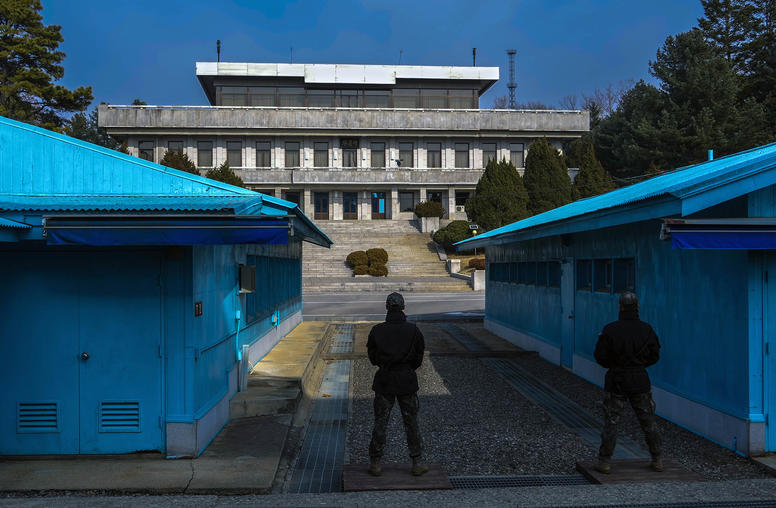Is Diplomacy Possible with North Korea?
Experts Assess the U.S.-North Korean Confrontation in a Forum for Public Radio International
After months of escalating confrontation between North Korea and the United States, President Trump used his November visit to Asia to reinforce a policy of “maximum pressure” against the North Korean government. But he also hinted at the possibility of a diplomatic off-ramp in the dispute over North Korea’s missile and nuclear weapons development. North Korea and the United States have offered signals of openness to diplomacy. But how real is that possibility? Leading experts on North Korea and nuclear proliferation gathered at USIP to discuss this urgent question.
Audience participation was part of this forum, which was taped live and broadcast across the United States on two programs from Public Radio International: America Abroad and The Takeaway.
Continue the conversation on Twitter with #NKoreaDiplomacy.
Speakers
Todd Zwillich, moderator
Host, The Takeaway
Glyn Ford
Former MP, Labour Party, European Parliament
Frank Aum
Senior Expert on North Korea, U.S. Institute of Peace
Jean Lee
Former Pyongyang Bureau Chief, Associated Press
Anthony Ruggiero
Senior Fellow, Foundation for Defense of Democracies



